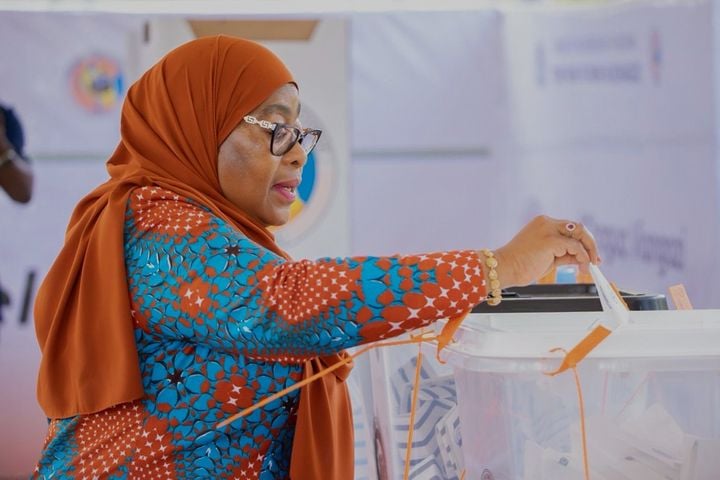UPDATE: Tanzanian President Samia Suluhu Hassan has declared victory in the country’s disputed election, securing over 97% of the votes, according to official results released early on Saturday. The announcement has intensified concerns among critics and opposition groups who argue that the election, held on October 29, was less a democratic process and more a coronation, especially as main rivals were barred from running.
Violence erupted across major cities as citizens protested the election results, leading to a heavy military presence on the streets. Demonstrators demanded an end to the ballot counting, sparking clashes that authorities have yet to quantify in terms of casualties. Reports from the UN Human Rights Office indicate at least 10 deaths in areas including Dar es Salaam, Shinyanga, and Morogoro. The unrest has prompted the government to postpone the reopening of universities, originally scheduled for November 3.
The situation remains tense, with security forces stationed at roadblocks demanding identification from those venturing out. Internet connectivity disruptions have compounded the chaos, affecting communication and travel across the nation.
In a statement, UN Secretary-General Antonio Guterres expressed deep concern over the escalating violence and called for all parties to engage in dialogue to prevent further conflict.
The election was marred by allegations of repression, including arbitrary arrests and enforced disappearances. Opposition leader Tundu Lissu, who has been imprisoned since calling for electoral reforms, has become a symbol of the crackdown on dissent. Another opposition figure, Luhaga Mpina, was barred from participating in the elections altogether.
Critics have highlighted the ruling party, Chama Cha Mapinduzi (CCM), which has dominated Tanzanian politics since independence in 1961, as increasingly authoritarian under Hassan’s leadership. While previous leaders maintained a level of tolerance for opposition, Hassan’s regime is accused of silencing dissenting voices through intimidation and violence.
International observers have noted that Hassan’s landslide victory parallels tactics employed by other authoritarian leaders in the region, raising alarms about the future of democracy in Tanzania. As protests continue and the government tightens its grip on power, many are left wondering what the next steps will be for both the government and the opposition.
Authorities have not released a comprehensive account of the violence, but human rights organizations are closely monitoring the situation. The international community watches with bated breath as Tanzania navigates this turbulent political landscape, one that could redefine its future and impact the broader East African region.
As the situation develops, the call for free and fair elections resonates louder than ever, with citizens yearning for their voices to be heard amid the chaos. The world is watching Tanzania—will it stand firm for democracy or succumb to authoritarianism?







